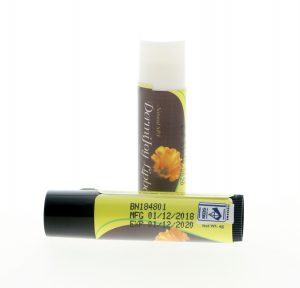Consumer habits have exhibited dramatic change over the past number of years. The 21st-century customer is quite informed and expects a high level of satisfaction after purchasing a skin care product. This informed customer is alive to the fact that a finished product is a result of a host of ingredients that are used in its production. Unlike in the past, it’s now common for consumers to pick a skincare product and peer through the list of ingredients before making a decision to purchase.
Consumers are on the lookout of what they perceive as potentially harmful ingredients such as, mineral oil, petroleum jelly, parabens, etc. The list is endless. All these concerns have led brands to rethink the manner in which they position their brands to consumers. It is quite common to see “free from” claims in skincare products as brands attempt to appeal to the increasing number of health-conscious customers.
Sustainable Practices in Production
Aside from demanding well-formulated skincare products that do not cause adverse health effects, the 21st-century customer is also concerned about sustainability. Simply put, all industrial processes should be conducted in a responsible manner right from the sourcing of raw materials all the way to the production and marketing of the finished product.
Consumer backlash on matters sustainability is well exemplified in the textile industry. Major retail clothing brands have recently experienced consumer boycotts following revelations of inhumane treatment of workers in the production facilities located in third world countries. The clothing brands had to commit to improving working conditions in the respective plants, and they went further to ensure that all workers receive sustainable wages
This brings me to the current topic of palm oil. There has been increasing bad press on palm oil due to the high magnitude of environmental degradation that results after its processing. The rising demand for palm oil has led to the destruction of rain forests in South East Asia and Central America in order to make way for palm tree plantations.
Another environmental issue is the increased emission of greenhouse gases estimated at 10 percent of all carbon emissions globally. All these adverse effects on the environment have greatly contributed to climate change. Environmentally conscious customers have begun to boycott personal care products containing palm oil as a way to lobby for sustainable land use and practices in the beauty industry.
The beauty industry is taking note of all these consumer grievances and Estee Lauder, a leading global brand has begun to work with BASF and the Roundtable on Sustainable Palm Oil (RSPO) to ensure sustainable production of palm oil in Indonesia. This joint collaboration seeks to end deforestation and to ensure good wages for smallholder farmers who are dependent on palm tree cultivation. It is important to note that palm oil is a critical ingredient in personal care products and it’s also difficult to find a replacement and the only option is for the industry to engage in sustainable cultivation practices.
All in all, consumers can only wait and watch as they decide whether the environmental conservation measures by the industry are effective. It is remarkable how consumers continue to shape practices and define standards in the beauty industry.
References
The Guardian. (2002). Sweatshop campaigners demand Gap boycott. Retrieved from
https://www.theguardian.com/uk/2002/nov/22/clothes.globalisation
Sustainable Brands Staff. (2019). BASF, Estee Lauder, RSPO partner to enhance sustainable palm oil production. Retrieved from







thank a lot for your website it aids a lot.
Hello i am kavin, its my first occasion to commenting anyplace, when i read this paragraph i thought i could also make comment due to this brilliant post.| Jillana Waldo Dulcine
whoah this blog is excellent i really like studying your posts. Stay up the great work! You understand, many persons are looking around for this information, you can help them greatly. Darby Hermon Yousuf
Really enjoyed this blog. Really thank you! Really Great. Leeann Ivan Prisilla
Everything is very open with a clear explanation of the challenges. Rivi Wilt Salene
Good post. I absolutely appreciate this website. Stick with it! Doralynne Oby Braca
Thanks a lot for the feedback